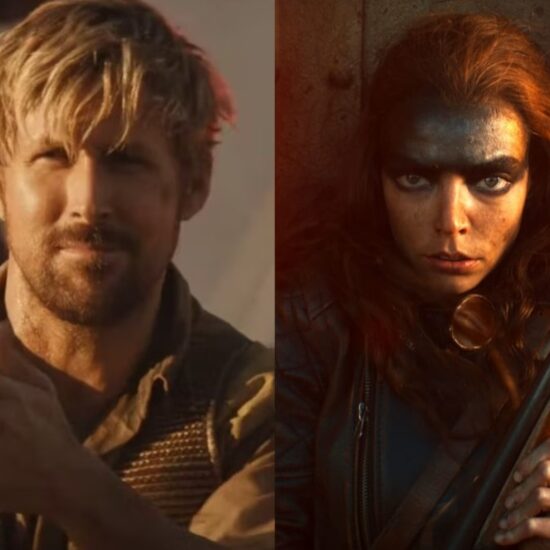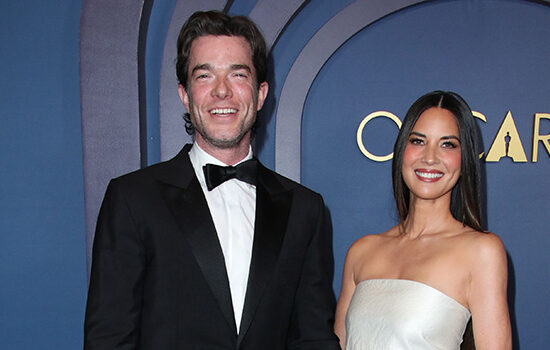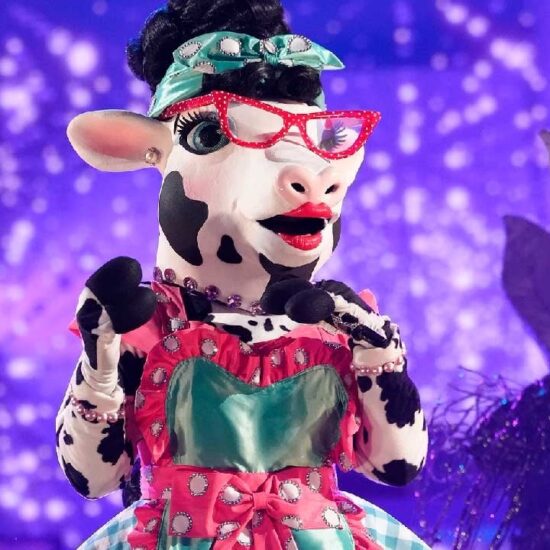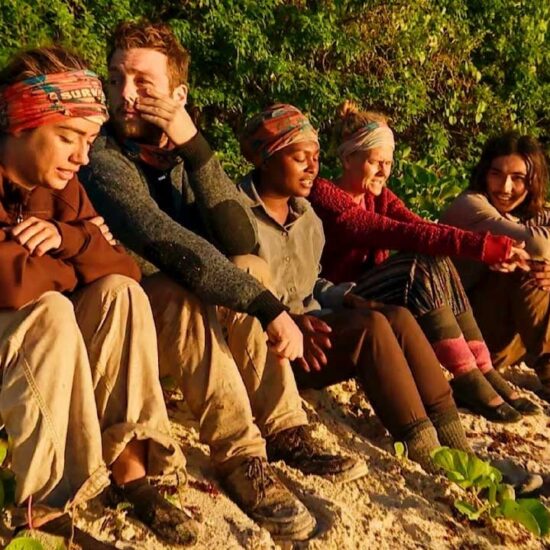
In its second season, Starz’s Power spin-off Raising Kanan is giving its matriarch — and its viewers — a real crash course in what it means to be a woman with power.
With Raquel “Raq” Thomas set squarely as the head of her family’s expanding empire — along with opening the door for her son Kanan to become more involved — season two of Power Book III has made clear that the biggest fight for the mother and businesswoman might not be getting to the top or even making the right choices to stay there. For women like Raq, it’s being good enough and still having to convince others you belong there.
It’s the kind of fight Patina Miller, the Tony-winning actress behind Raq, can relate to. Raised by a single mother in South Carolina, the actress says she grew up with few opportunities before taking her acting dreams into her own hands, getting herself into the prestigious South Carolina Governor’s School for the Arts & Humanities and earning a full ride to Carnegie Mellon University.
“I was going to make it work out. If I had to wait tables while doing a soap opera; if I had to go do voice lessons; if I had to get advice from mentors like Billy Porter, I was always a pupil,” Miller says, reflecting on those pivotal years after college.
Her drive, coupled with those early life choices, instilled in her the resilience and persistence necessary to support not just herself professionally, but her family, who she says have since moved closer to her as she helps take care of her niece. But with a family looking to her then and now, there’s been little room for failure. It’s a feeling that bursts from Raq’s narrative onscreen.
“I do think that Raquel, as the matriarch, there’s a lot of weight that comes with being the one person that everyone depends on,” Miller, who is also currently starring in Broadway’s Into the Woods, says. “So I tried to tap into my own experience of being in New York City and not having the choice of going home if it doesn’t work out.”
Amid season two, Miller spoke to The Hollywood Reporter about how the Starz series’ explores Raq’s juggling act; her own experiences with motherhood offscreen, onscreen and onstage; how the show and Courtney Kemp helped her find her voice in Hollywood; and how the crime-meets-family drama’s “big” Shakespearean themes are turning a genre and TV archetype on its head.
Raq was clearly against Kanan joining the business in season one. So do you feel like her decision to bring him into the fold this season was made purely out of love or is it connected to her own ambitions?
I think she really loves him, but I will absolutely say there is a little bit of mixing her ambition in there. It was more clear that it was all love in the first season. She’d been able to sort of compartmentalize everything. Parenting is over there. My job is over here. So now that she’s gotten ahead and both of her worlds are colliding, its become harder to separate. And because Kanan made the choices he’s made as well, it’s put their relationship in a sticky situation. Her doing what she did at the end of the first season, they can never really go back. So in the second season, she’s trying to repair that relationship but she’s also trying to make that relationship work for her when it comes to her ambition. What was so glamorizing for him is being in his mother’s world and she kept saying no. Now there is this thing of, “I know how I can get him. I’ll seduce him with the idea of being in the family business and at least connect with him,” so she doesn’t all the way lose him — because she is losing him. She’s trying to figure out ways to keep him close to her and keep that bond in whatever way it looks like. Right now, it looks like if I pull him into the business, then maybe we can have the mother-son relationship. Instead, it gets a little hairy and it continues to get hairy as the season goes on.
That mix of love and ambition feels really connected to the motivations of The Witch, who you are currently playing in the acclaimed Broadway limited run of Into the Woods. Do you find yourself being able to draw from one role for the other? Is there overlap for you?
There’s very much overlap, so much overlap that I did not recognize until I was doing both. And I think both are so rich. What they both are for me are three-dimensional characters. What I always want to do when I approach work is define and go as deep as I can. Honor what’s come before me — since it is a revival — find those influences and go a bit deeper. I love the idea of taking a character that has so many of these negative spins on them: “Raq is ruthless, Raq is bad. The witch is all of these things.” What’s interesting is finding the love and vulnerability. No one is just bad to be bad. There’s something there — trauma, hurt. I like to investigate all of that because, at the end of the day, both of these characters are human. Yes, it’s an archetype, but I think there’s something to be said for understanding that. They’re two single moms, if you will, since the Witch, who’s raising Rapunzel by herself, never talks about a partner. Raquel is raising children by herself. And these two women, in trying to protect and keep their children safe, do really stupid things because we’re all learning. So I tried to tap into the humanity of both of those roles.
I think there’s this prevailing idea beyond your show that parents, and sometimes specifically our mothers, our people’s “origins story.” With experience embodying these roles in your work and in your real life — being a mother, having a mother and personally understanding that complexity — are learning from Raq about how you view motherhood? Are you bringing anything to Raq?
I’ve absolutely learned so much. I’ve always tried to be as good as I could at everything that I’ve done, but motherhood is tricky because you have the great responsibility of raising a human. I have the great responsibility of raising not just a human, but a young girl. And there is this thing where you want to be perfect. I put a lot of pressure on myself to be perfect. But what I’ve realized over the past five years is that there’s no such thing as perfection and that we’re constantly changing and growing. I’m on a journey just like she’s on a journey and trying to be good to myself and honoring where I am in the process. I’m giving myself more room to grow and be OK with where I am. And listen, I am ferocious especially, I think, with the world the way it is now. So what I identify with, along with my character, is that desire to protect and nurture and to also leave room for children to grow and to find their own voice. Motherhood doesn’t look the same for everyone, but I want to give myself a little bit of credit. I’m proud of what I’ve done. I’m proud of who I am right now and who I am to her.
In an interview a few years ago, Courtney Kemp spoke about how writing for the Power universe is similar to writing Shakespearan melodrama, even noting some influences on the franchise’s shows. Do you feel like Raising Kanan fits into that Shakespearan melodrama vision? Is it different?
When I think about Shakespeare, I’m thinking about text. I’m thinking about how there are so many archetypes, it rhymes, there’s underlying meaning. Because in the text, there’s always something going on underneath it. And I think there are some really big themes in the show, the mother-son of it all. I think that mother-son dynamic really does play across the [Power] universe. But I wouldn’t say our show is melodramatic. I would say there are big themes. I would say that these are people who are searching for something, who have wants and needs, and what they do to get those things can be big and Shakespearean because the text is that way. But it’s also real as well. There’s something that’s so raw about it. I do think our show is really grounded in truth and in honesty. Those are the kind of things that we talk about — it being a family drama about characters who make certain choices and then there are consequences. We talk about death on our show, how all the deaths on the show are deaths that have to happen and they mean something, so when we do decide to kill a character or to attempt to kill a character, it’s a big thing. So when I think about it in that sense, yes. Raq really wants so much, but she also wants to be a good mother. She wants to be the matriarch of this family and the family all want different things. That’s what it is. Trying to examine your family. We don’t always agree with family but at the end of the day, no matter what happens, your family is your family.
Do you feel like the viewers, critics and industry people understand your show as that “big” picture Shakespeare-esque family drama that people really love to talk about with white ensembles?
I think we have an opportunity. I don’t think the media quite understands what we’re trying to do. Not yet. Maybe because it’s a new show. I don’t know if it’s because of the world. When I think of the world, our show, it’s no different than the world of Boardwalk Empire, of Good Fellas, of Scarface — a genre that is highly regarded and people love. When I think of those things, they’re big crime dramas and it is no different from what we are doing. We are telling complex stories. These are complex characters. What I love about our show is that these happen to be the people of color who are inhabiting these roles. But the situation and what they’re going through can be universal. I think there are a lot of universal themes to our show that I hope people pay attention to. We don’t just talk about who shot who or who kills who this week. I think the medium has to do better about how we talk about that and, I don’t want to say Black shows, but this kind of show. There is a way to do this kind of drama and in the way that we’re doing it.
And I think Power fans, they get it. I love to see the discussion online, people really talking and trying to connect the dots with what’s going on. If we are doing something different, I think it’s that we are presenting something that people think they know and we are flipping it on its head. You are getting a gritty crime drama, but you’re also getting a family drama that’s full of so many different things. At the end of the day, Raq is a woman who’s been thrust into a situation and decided to make an opportunity for herself when there were no other choices being given to her. And what do you do when you’re in a position like that? Or as a young man on his journey of discovering himself — who wants to protect his mom and protect his family — and who starts in a very different way, on the straight and narrow, smart, but is attracted to the dark side?
This season feels even clearer about portraying how Raquel, a Black woman, is navigating a man’s world. It’s an experience — of constantly having your voice or authority in something challenged by men — that many women in Hollywood and beyond are familiar with. Have you experienced that in your career and how has working on Raising Kanan, where you are a lead and major voice, compared?
Prior to this [show], I have often felt at times singled out and things have been said that maybe shouldn’t have been said. As you’re trying to find yourself as a young woman in rooms like this, first it comes with “Oh, you don’t want to be the angry Black girl.” Or if you have an issue, you want to come off as soft as you can because there is already this idea that Black women are hard. So to have to work through spaces, time after time, you can feel some type of way. I’ve had to deal with that in the past, but becoming a mother changed everything for me. Becoming a mother made me realize that I have to speak up for myself and I can no longer be a part of things where my voice doesn’t matter. It led me to trust my instincts; trust what I bring to things; trust that no one’s doing me any favors. I’ve done the work and so this is what should happen. I am supposed to be in these rooms. I shouldn’t be thankful to be in the room. This is just where I’m supposed to be.
It’s something that I’ve had to work through — all the trauma; all of the loneliness. At times — even when you’re at the top, even if you’ve won a Tony — walking in rooms where you feel like you still have to prove yourself in ways that others don’t have to. This is the most supportive process I’ve ever been part of really if I’m being honest. It has been so cathartic because it’s been the opposite of everything. It has only been a collaboration. I credit that to Courtney Kemp. Just watching how she’s navigated this and seeing other Black women own their truth, being in these rooms and doing the thing and not apologizing for it — it’s very inspiring. To work with her on a project and to feel respected, to feel that your voice matters, that’s a really empowering thing. My voice is wanted more and more and I’m trusting myself. It’s allowed me to go to places with my character because the rooms are what we want. I have found my voice and I learned I won’t be in another room where it isn’t heard, where my voice isn’t respected. I know what I bring to things and I’m not going to be afraid anymore.
Raising Kanan is giving a Black woman the chance to occupy an archetype that viewers have really only seen on white male characters like Tony Soprano. But I think Raq expands and even defies it a little bit through her relationship with Jukebox, which has evolved a bit this season. How do you feel like the show really reimagines elements of that male-dominated archetype through Raq?
I think when you have this character figured out, she completely flips it on its head. So one thing that stops people a lot is that in one regard they hate Raq and then see she can be so loving, nurturing and accepting of Jukebox. But the writers have all seen what I saw from this character: her ability to really love and how strongly she loves just as much as she can be ruthless. For me, that’s the beauty of what makes Raq different: her capacity to love. Having a mother who wasn’t really the mother she needed to be has made Raq want to mother in a certain way. And in a world where she feels alone, Raq is literally the only one who Jukebox can be herself with and talk to. Raq is just there to listen and not to judge her. And Jukebox is as much her child as Kanan is when you really think about it. That’s her niece. It’s where she can put her softness. So second season, it’s about being there and trying to guide her through finding her mom, even though there’s a bit of jealousy. Raq is losing Kanan and, now, Jukebox is interested in finding her own mother. As Raq’s power is growing, her love, her stability, her home, her family is in disarray. But that relationship was as important to me from the very beginning. Taking on your brother’s responsibility of raising a child where the mother has gone away and the brother is a hot mess — I’ve done that selflessly while trying to be a young woman. I have a relationship with my niece. No, she’s not queer, but I took on the responsibility of raising my niece from when she was five years old. I know what that is. I’m coming to the character with my own experience and I’m allowing my own stuff to go into these characters. And how cool to have a role where you can work through your own stuff.
Interview edited for length and clarity.
Power Book III: Raising Kanan season two is currently airing on Starz.













